Related Research Articles
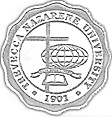
Trevecca Nazarene University (TNU) is a private Nazarene liberal arts college in Nashville, Tennessee. It was founded in 1901.

Vanderbilt Peabody College of Education and Human Development is the education school of Vanderbilt University, a private research university in Nashville, Tennessee. Founded in 1875, Peabody had a long history as an independent institution before merging with Vanderbilt University in 1979. The school is located on the Peabody Campus of Vanderbilt University in Nashville. The academic and administrative buildings surround the Peabody Esplanade and are southeast of Vanderbilt's main campus.

Luke Lea was an American attorney, politician and newspaper publisher. A Democrat, he was most notable for his service as a United States Senator from Tennessee from 1911 to 1917. Lea was the longtime publisher of The Tennessean newspaper in Nashville, and a United States Army veteran of World War I. In 1919 he led an unauthorized and unsuccessful attempt to kidnap the recently exiled German Kaiser Wilhelm II.

Holland Nimmons McTyeire was an American bishop of the Methodist Episcopal Church, South, elected in 1866. He was a co-founder of Vanderbilt University in Nashville, Tennessee. He was a supporter of slavery in the United States.
University of Nashville was a private university in Nashville, Tennessee. It was established in 1806 as Cumberland College. It existed as a distinct entity until 1909; operating at various times a medical school, a four-year military college, a literary arts college, and a boys preparatory school. Educational institutions in operation today that can trace their roots to the University of Nashville include Montgomery Bell Academy, an all-male preparatory school; the Vanderbilt University Medical School; Peabody College at Vanderbilt University; and the University School of Nashville, a co-educational preparatory school.
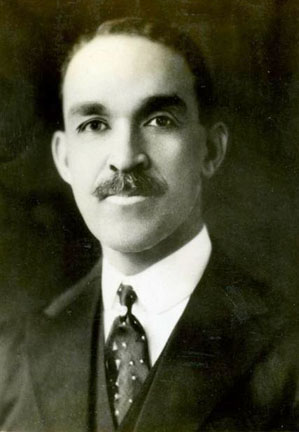
Benjamin Griffith Brawley was an American author and educator. Several of his books were considered standard college texts, including The Negro in Literature and Art in the United States (1918) and New Survey of English Literature (1925).
Roy Clyde Clark was an American bishop of the United Methodist Church, elected in 1980.

The Southern Intercollegiate Athletic Association (SIAA) was one of the first collegiate athletic conferences in the United States. Twenty-seven of the current Division I FBS football programs were members of this conference at some point, as were at least 19 other schools. Every member of the current Southeastern Conference except Arkansas and Missouri, as well as six of the 15 current members of the Atlantic Coast Conference plus future SEC member University of Texas at Austin, currently of the Big 12 Conference, formerly held membership in the SIAA.
Walter Lynwood Fleming (1874–1932) was an American historian of the South and Reconstruction. He was a leader of the Dunning School of scholars in the early 20th century, who addressed Reconstruction era history using historiographical technique. He was a professor at Vanderbilt University from 1917 through his career, also serving as Dean of the School of Arts and Sciences, and Director of the Graduate School. A prolific writer, he published ten books and 166 articles and reviews. The son of a plantation owner who had slaves, Fleming was sympathetic to White supremacist arguments and Democratic Party positions of his era while critical of Republicans and Reconstruction.
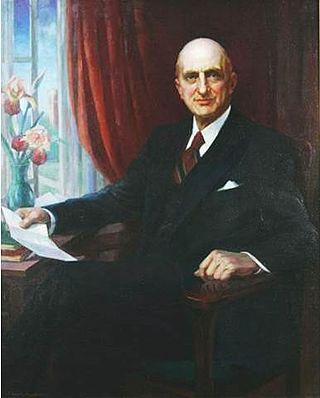
James Hampton Kirkland was an American Latinist and university administrator. He served as the second chancellor of Vanderbilt University from 1893 to 1937.

George Alexander Heard was chancellor of Vanderbilt University from 1963 to 1982. He was also a political scientist and adviser to U.S. presidents John F. Kennedy, Lyndon B. Johnson, and Richard Nixon.
Henry C. Hibbs (1882–1949) was an American architect. He designed many buildings on the campus of Vanderbilt University in Nashville, Tennessee, as well as Davidson College in Davidson, North Carolina. He also designed the libraries of Fisk University in Nashville and the University of Tulsa in Tulsa, Oklahoma. He was the recipient of several awards for his architectural work.
Edwin Mims (1872–1959) was an American university professor of English literature. He served as the chair of the English Department at Vanderbilt University in Nashville, Tennessee, for thirty years from 1912 to 1942, and he taught many members of the Fugitives and the Southern Agrarians, two literary movements in the South. He was a staunch opponent of lynching and a practicing Methodist.
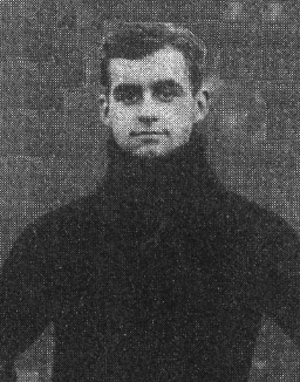
John Owsley Manier was an American college football player and coach and physician. He played at Vanderbilt University as a Fullback from 1904 to 1906 and at the University of Pennsylvania in 1908 as a halfback. Manier was a third-team selection on the 1906 College Football All-America Team and was named to the College Football All-Southern Team in 1904, 1905, and 1906. After graduating from Penn with a medical degree, he return to Vanderbilt and an assistant medical professor and assistant football coach.
The College Football All-Southern Team was an all-star team of college football players from the Southern United States. The honor was given annually to the best players at their respective positions. It is analogous to the All-America Team and was most often selected in newspapers. Notable pickers of All-Southern teams include John Heisman, Dan McGugin, George C. Marshall, Grantland Rice, W. A. Lambeth, Reynolds Tichenor, Nash Buckingham, Innis Brown, and Dick Jemison.
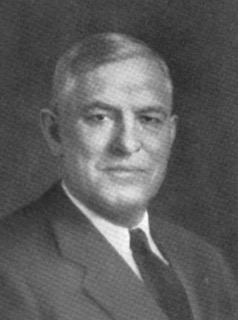
Bradley Walker was a Nashville attorney who, in his youth, was found to be naturally proficient at virtually any sport he tried, including football, baseball, track, boxing, tennis and golf— in all these sports he either set records or won championships or awards.
William Powlas Peery was a Pastor of the Evangelical Lutheran Church in America/Andhra Evangelical Lutheran Church who taught theology at ecumenical institutions, the Andhra Christian Theological College at its erstwhile location in Rajahmundry and also at the United Theological College, Bangalore both of which are affiliated to the nation's first University, the Senate of Serampore College (University), Serampore.
Charles Madison Sarratt (1888–1978) was an American academic and administrator. He was the co-author of a textbook on mathematics. He was the chair of the department of mathematics at Vanderbilt University from 1924 to 1946, dean of students from 1939 to 1945, vice-chancellor from 1946 to 1958, and dean of alumni from 1958 to 1978.

Bruce Ryburn Payne (1874-1937) was an American educator. He was the founding president of Peabody College from 1911 to 1937.
Sidney Clarence Garrison (1885–1945) was an American educator and psychologist. He served as the second President of Peabody College from 1938 to 1945. He was the (co-)author of several books about education.
References
- ↑ "Columbia College SC - Past Presidents". 2011-07-25. Archived from the original on 2011-07-25. Retrieved 2019-10-16.
- ↑ Pugh, Griffith Thompson.; Pugh, Griffith Thompson (1905). Pleistocene deposits of South Carolina : with an especial attempt at ascertaining what must have been the environmental conditions under which the Pleistocene Mollusca of the state lived / by Griffith Thompson Pugh. Nashville, Tenn.
{{cite book}}: CS1 maint: location missing publisher (link)